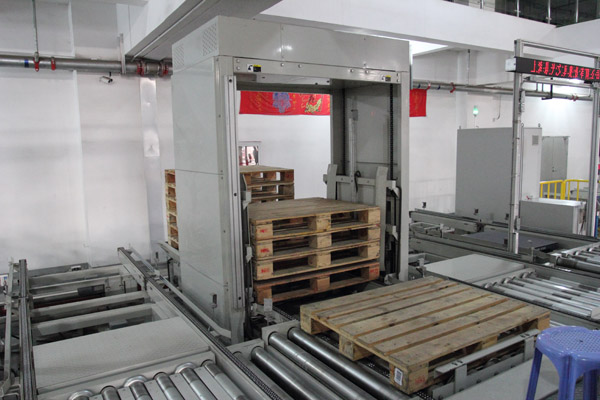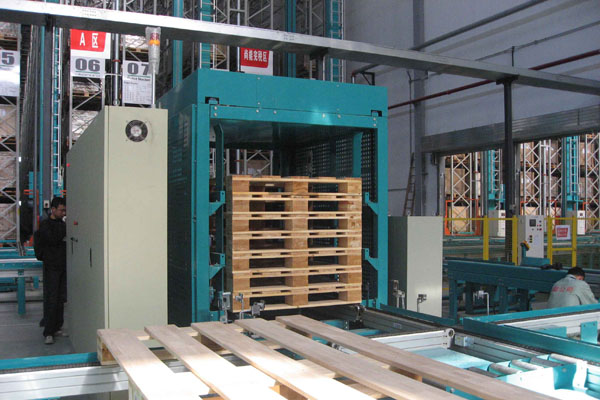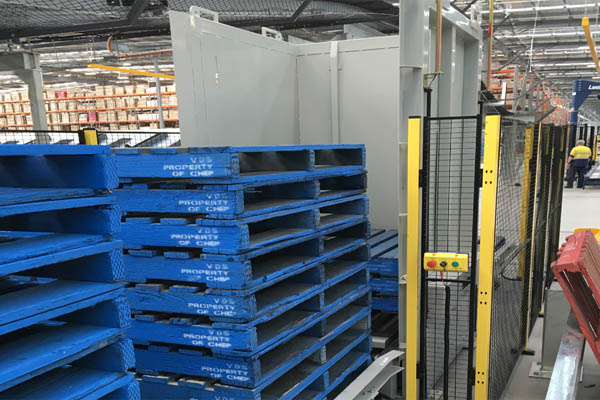In modern industrial environments, efficiency and precision are essential to maintaining competitive operations. Among the many innovations driving automation and streamlining processes, pallet dispensers have become indispensable tools. These devices play a critical role in material handling, improving productivity and reducing labor costs across various sectors.

Understanding Pallet Dispensers
A pallet dispenser is a machine designed to automatically dispense pallets one at a time. By stacking and organizing pallets, it eliminates the manual effort typically required for handling these essential components of material transportation. This automation reduces the risks of workplace injuries and ensures consistency in operations.
Pallet dispensers are particularly valuable in industries where pallets are in constant use, such as warehousing, manufacturing, and distribution. They provide a seamless way to manage pallets, enhancing the flow of goods within a facility. As demands for faster and more reliable logistics grow, the role of these devices becomes increasingly significant.
How Pallet Dispensers Work
The operation of a pallet dispenser is straightforward but highly effective. Pallets are loaded into the dispenser, where they are stacked and stored. When needed, the machine releases a single pallet, ready for use. Advanced models are equipped with sensors and control systems that ensure precise dispensing, reducing downtime and maintaining smooth workflows.
In many setups, a pallet dispenser is integrated with a conveyor system to further enhance efficiency. For example, a conveyor system manufacturer might design solutions that synchronize the movement of pallets and products, creating an automated material handling network. This integration simplifies operations, minimizes errors, and optimizes space utilization.
Benefits of Pallet Dispensers
The adoption of pallet dispensers offers numerous advantages for businesses aiming to improve their material handling processes. Key benefits include:
-
Improved Safety: Manual pallet handling poses risks of injury due to heavy lifting and awkward movements. Automating this task reduces such hazards, ensuring a safer workplace.
-
Enhanced Productivity: By eliminating the need for workers to manually retrieve and organize pallets, businesses can reallocate labor to more value-added tasks. This shift not only improves efficiency but also boosts overall productivity.
-
Cost Savings: Reduced labor costs and fewer workplace injuries translate to significant financial savings. Additionally, the improved efficiency helps lower operational expenses.
-
Consistency and Reliability: Pallet dispensers ensure that pallets are dispensed consistently, minimizing disruptions and maintaining a steady workflow.
-
Space Optimization: These machines organize pallets efficiently, making better use of available storage space and keeping work areas uncluttered.

Applications Across Industries
Pallet dispensers are versatile tools used in various industries. In warehouses, they facilitate smooth operations by ensuring pallets are always ready for loading or unloading. Manufacturing facilities rely on these machines to maintain a steady supply of pallets for assembly lines. Similarly, distribution centers use them to streamline the movement of goods, ensuring timely deliveries.
The integration of pallet dispensers with automated conveyor systems further enhances their utility. For instance, a conveyor system manufacturer can create customized solutions that seamlessly link pallet dispensers with sorting, packaging, and shipping processes. This level of automation is especially beneficial in high-volume operations, where speed and accuracy are paramount.
Choosing the Right Pallet Dispenser
When selecting a pallet dispenser, businesses should consider several factors to ensure the chosen solution meets their needs. Key considerations include:
-
Capacity and Compatibility: Evaluate the capacity of the dispenser and ensure it is compatible with the types of pallets used in your operations.
-
Automation Features: Look for advanced features such as programmable controls, sensors, and integration capabilities with existing systems.
-
Durability and Maintenance: Choose a dispenser built with high-quality materials that can withstand heavy use. Consider the ease of maintenance and availability of support services.
-
Space Requirements: Assess the available space in your facility and select a dispenser that fits seamlessly without disrupting workflows.
-
Cost-Effectiveness: Balance initial investment costs with long-term benefits such as labor savings, improved efficiency, and reduced downtime.
The Role of Conveyor System Manufacturers
Conveyor system manufacturers play a pivotal role in the effective deployment of pallet dispensers. These experts design and implement systems that ensure seamless integration between dispensers and other material handling equipment. By leveraging their expertise, businesses can achieve a well-coordinated automation network that enhances productivity and minimizes operational bottlenecks.
Collaborating with a conveyor system manufacturer ensures that the overall system is tailored to specific operational needs. Whether it's optimizing the flow of goods, improving storage solutions, or automating repetitive tasks, these professionals provide the expertise needed to maximize the benefits of pallet dispensers.

Future Trends in Pallet Dispenser Technology
As technology continues to evolve, pallet dispensers are becoming more advanced. Emerging trends include the integration of IoT (Internet of Things) capabilities, allowing real-time monitoring and data analysis. These features enable predictive maintenance, reducing the likelihood of unexpected breakdowns and enhancing overall reliability.
Additionally, advancements in robotics and artificial intelligence are paving the way for more intelligent and adaptable pallet dispensers. These machines can learn from operational data, optimizing their performance and adapting to changing demands. Such innovations promise to revolutionize material handling, making processes more efficient and resilient.
Conclusion
Pallet dispensers are vital tools for modern material handling, offering numerous benefits that improve efficiency, safety, and cost-effectiveness. Their integration with automated systems, particularly through collaboration with conveyor system manufacturers, further enhances their value in industrial settings. As technology continues to advance, these devices will play an even more significant role in shaping the future of logistics and manufacturing.





